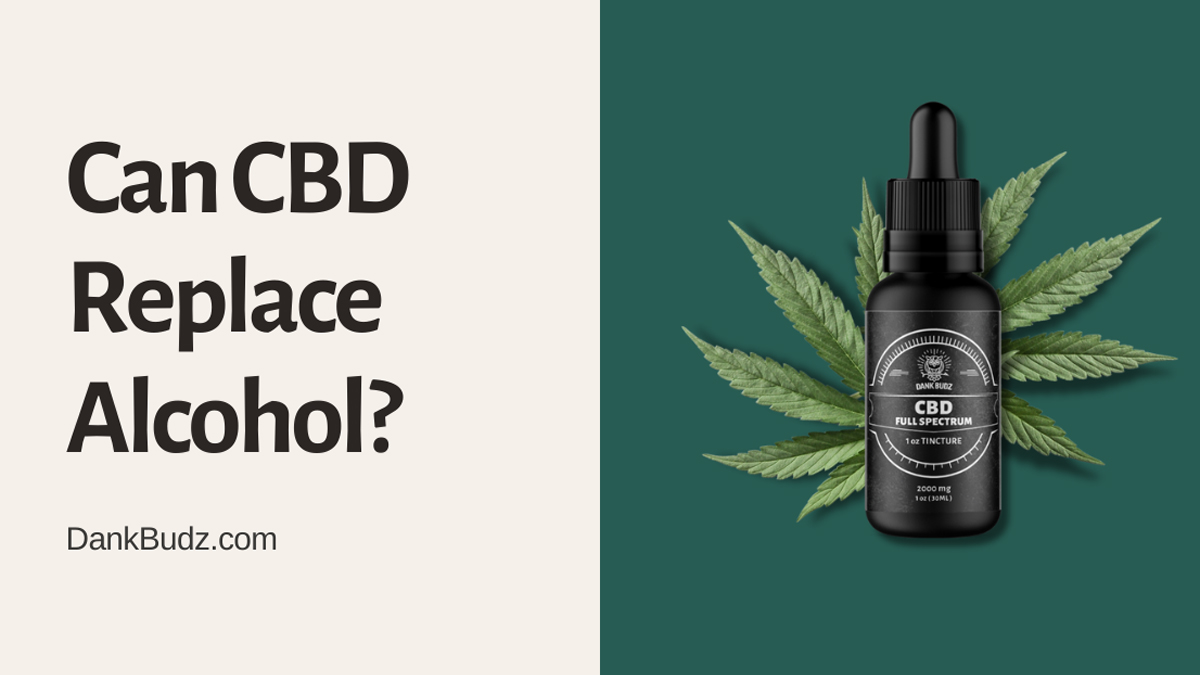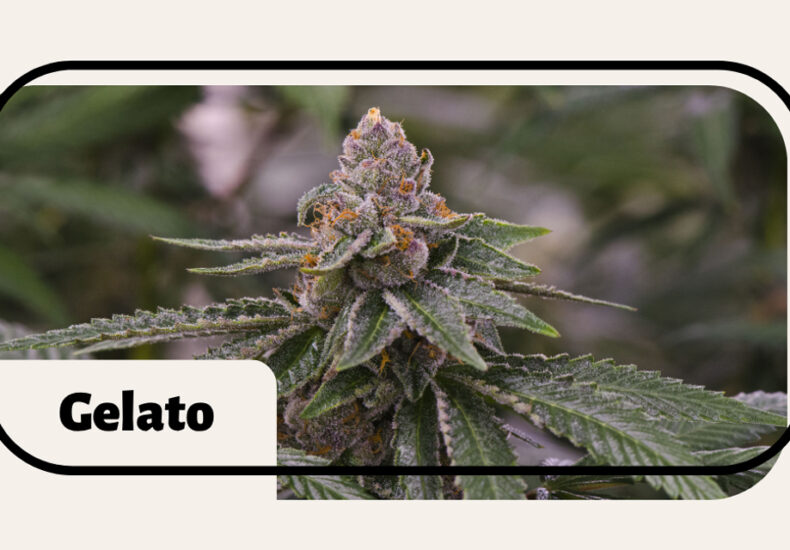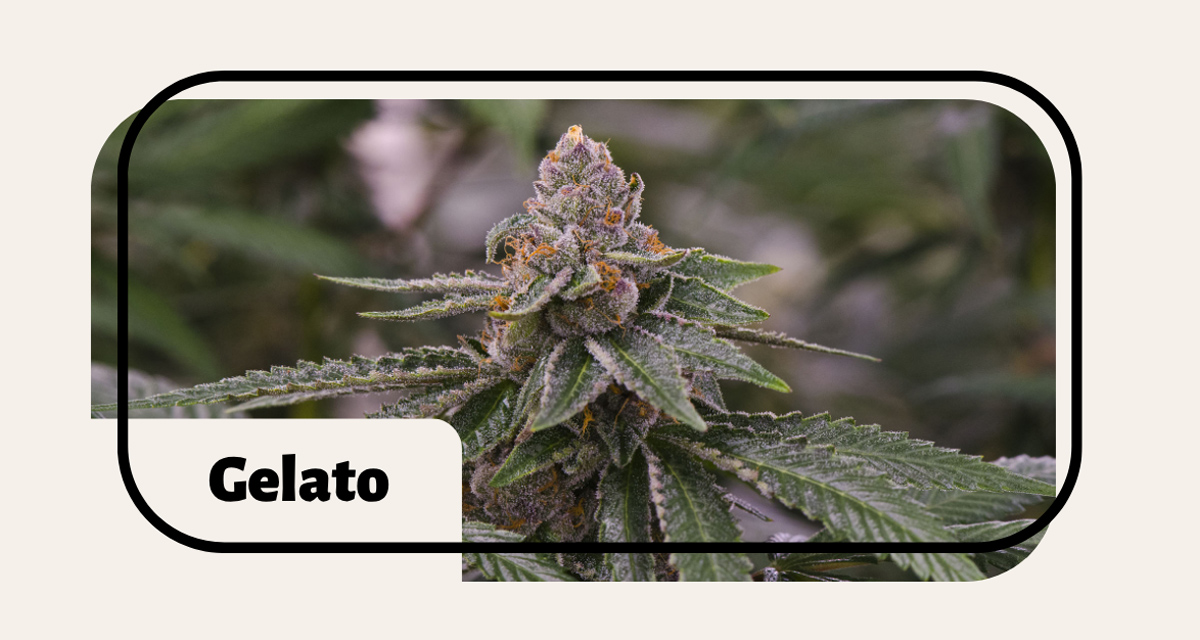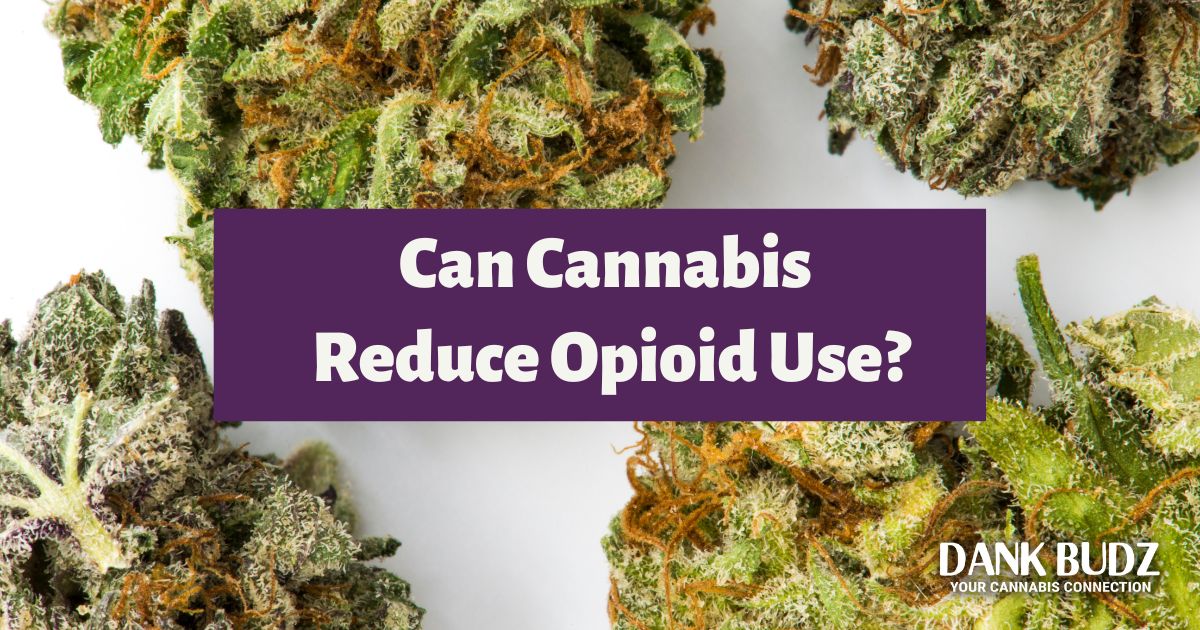
Cannabis has a centuries-long history of use as a herbal remedy, and despite its recent association primarily with recreational use, the plant truly has many functions. The social history of cannabis is complicated as well. Beyond recreational use, cannabis can also be incredibly helpful in the medical field. It’s been used more commonly in the treatment of pain symptoms from cancer and has recently shown potential to reduce opioid dependency.
Such findings beg the question:
Can Marijuana Replace Opiates?
The Relation Between Opioids and Cannabis
Opioids are often prescribed to patients for pain management, in the form of powerful prescription medications like morphine, fentanyl, codeine, hydrocodone, and oxymorphone. As a result, the opioid epidemic is growing, both nationwide and worldwide.
The CDC reports the number of drug overdose deaths increased by nearly 5% from 2018 to 2019 and has quadrupled since 1999. Over 70% of the 70,630 deaths in 2019 involved an opioid. From 2018 to 2019, there were significant changes in opioid-involved death rates. [1]Wide-ranging online data for epidemiologic research (WONDER). Atlanta, GA: CDC, National Center for Health Statistics; 2020. Available at http://wonder.cdc.gov
When patients become dependent on prescription opioids to manage their pain, they’re more likely to make the switch to illegal opioids as a more accessible and less expensive option. Researchers have identified potential replacement therapies and medications to assist those trying to end their opioid dependency. For the most part, these work by limiting the effects of withdrawal and helping prevent relapse. However, opioid replacement therapies are expensive, difficult to acquire, and as a result of the booming crisis, in low supply.
In fact, their inaccessibility is a huge problem.
Worse, these treatments are not always free of risks, and some may not help the individual the way they’re meant to. As a result, the US is experiencing an unprecedented need for new treatment therapies for opioid dependency.
This is where medical marijuana could help.
There is medical evidence that medical cannabis may have a substitution effect capable of reducing opioid misuse. This could point to medical cannabis as a useful tool in fighting against relapse and overdose risk commonplace within the opioid epidemic.
Researchers have several reasons to believe cannabis could act as a safe replacement for opioids in some use cases. [2]Kvamme, S.L., Pedersen, M.M., Rømer Thomsen, K. et al. Exploring the use of cannabis as a substitute for prescription drugs in a convenience sample. Harm Reduct J 18, 72 (2021). … Continue reading
- Medical cannabis is commonly used to assist in pain management
- There is backing evidence for the use of cannabis to treat chronic pain
- There has never been a death reported from a cannabis overdose
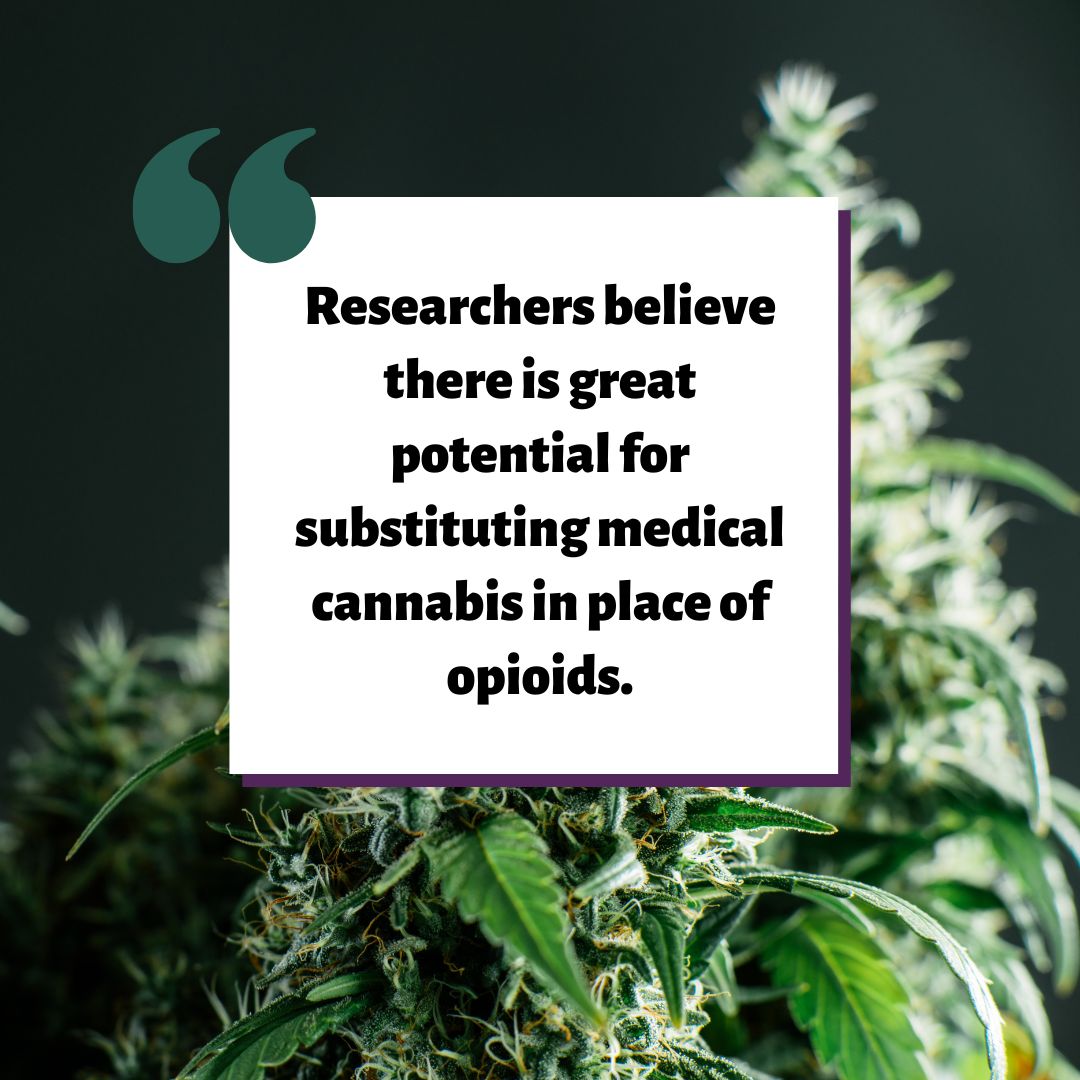
Legal Medical Cannabis
The primary cannabinoids studied by cannabis researchers are tetrahydrocannabinol (THC) and cannabidiol (CBD). THC is the cannabinoid responsible for the psychoactive effect, or ‘high’ that comes from cannabis use. CBD is often used to treat pain, as it has anti-inflammatory properties. The medical and therapeutic impacts of the particular strain of cannabis is very dependent on the ratio between these two cannabinoids and their effect on the individual patient. For this reason, strains with varying ratios have been created to address various symptoms and patients.
Some legal medical cannabis medications approved by government bodies include:
- Dronabinol (Marinol) is approved in the U.S. by the FDA as a treatment for the negative effects of cancer chemotherapy, including nausea. This medication is also a treatment for AIDS symptoms like weight loss and loss of appetite. It comes in capsule form.
- Sativex (Nabiximols) is approved in the UK and Canada for muscle spasms and pain from Multiple Sclerosis and is being researched as a cancer symptom treatment. It is still under study in the US
- Nabilone (Cesamet) is licensed in the UK and the U.S. It is a capsule that is used to treat side effects chemotherapy, like severe sickness, when other drugs have been ineffective.
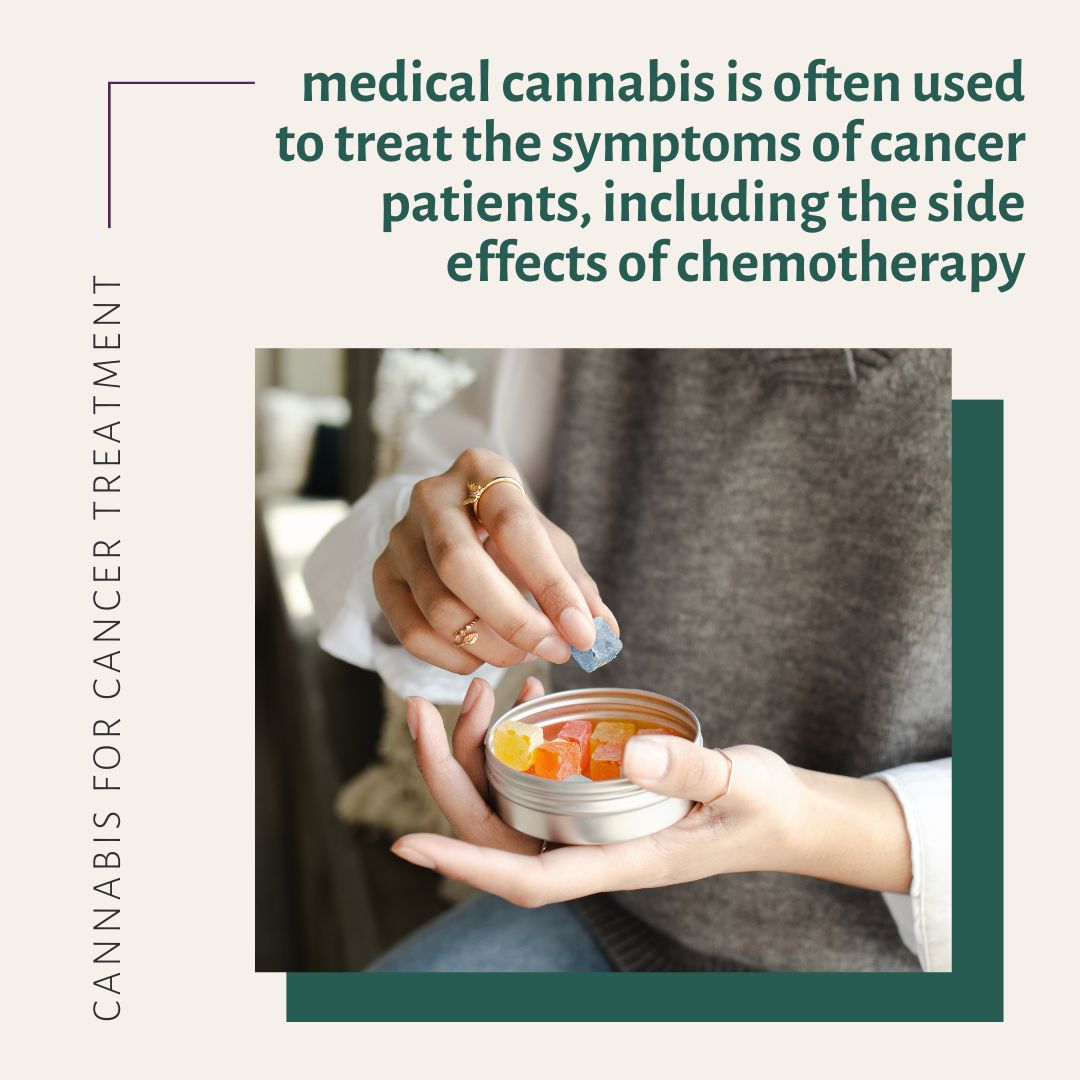
The Therapeutic Cannabinoid Connection
Plant-based compounds (PBCs) are naturally present in plants and have medicinal properties.PBCs are found in fruits, nuts, grains, veggies, etc. Some examples of plant-based compounds are flavonoids, alkaloids, and terpenes. And, you know what? PBCs are found in herbs…such as cannabis! Cannabinoids are found in the cannabis plant. CBD and THC are among the most popular (and researched) of them.
One single cannabinoid, THC, showed promise in addressing neuropathic pain. [3]Wilsey, B. L., Deutsch, R., Samara, E., Marcotte, T. D., Barnes, A. J., Huestis, M. A., & Le, D. (2016). A preliminary evaluation of the relationship of cannabinoid blood concentrations with the … Continue reading In another study of those reliant on opioids for a decade, half of those studied were able to stop opioid use. And, one-third were able to curtail their intake of opiates while taking THC. [4]Kevin M. Takakuwa, Jeffrey Y. Hergenrather, Frances S. Shofer, and Raquel M. Schears.The Impact of Medical Cannabis on Intermittent and Chronic Opioid Users with Back Pain: How Cannabis Diminished … Continue reading Patients endorsed THC for its ability to lessen side effects, being more accessible, and for producing better, overall outcomes.
But, Aren’t Cannabinoids Addictive Too?
Some can argue that you’re just substituting being dependent on one substance for another. But, recovery is a lifelong process. And, for some, the side effects and overall influence on one’s lifestyle leads some to advocate cannabinoids for therapeutic and medicinal use.
In rare cases, cannabis use can lead to a disorder; however, less than 10% of users will develop this disorder within a lifetime. [5]Anthony, J. C., & Echeagaray-Wagner, F. (2000). Epidemiologic analysis of alcohol and tobacco use. Alcohol research & health : the journal of the National Institute on Alcohol Abuse and … Continue reading And, unlike opioids, there have been no reported deaths directly linked to an overdose of cannabis. Abruptly stopping cannabis use is not lethal, yet can have several effects, including weight loss, anger, anxiety, and sleep disturbance.
The Medical and Therapeutic Impact of Cannabis
Cannabis Can Be a Pain Medication for Cancer
As mentioned, medical cannabis is often used to treat the symptoms of cancer patients, including the side effects of chemotherapy. Natural cannabinoids, phytocannabinoids, and synthetic cannabinoids can influence how the body’s endocannabinoid receptors transmit signals, including their resulting effects on brain tissues and other cellular pathways. As a result, cannabinoids can mitigate the symptoms of diseases like cancer and may affect their progression as well.
Most often, medical cannabis is used to alleviate pain in cancer patients, both from cancer and chemotherapy. In addition to being used to relieve pain, it is used to help alleviate nausea and vomiting, and induce an appetite. On a more significant level, cannabinoids have also been shown to inhibit tumor growth, though this depends on numerous factors, like the type of cancer and the concentration of the medication. Medical cannabis is also implemented for other pain management.
Cannabis Can Help Lessen Opioid Addiction
There have been many efforts to mitigate the opioid crisis epidemic. However, opioid use disorder (OUD) is extremely difficult to manage. For example, relapse is one of the greatest challenges in the treatment of opioid dependency. Between the severe effects of withdrawal and the length of time it takes to reach opioid recovery, abstinence is a very ineffective tool for those trying to cease opioid use. Currently, the most proven tool to prevent relapse is a healthy support system combined with medication-pharmacotherapy. [6]Beth Wiese and Adrianne R. Wilson-Poe.Emerging Evidence for Cannabis’ Role in Opioid Use Disorder.Cannabis and Cannabinoid Research.Dec 2018.179-189.http://doi.org/10.1089/can.2018.0022
Medical cannabis presents nowhere near the risk of opioids, as withdrawal and misuse of cannabis has never resulted in death. As a result, researchers believe there is great potential for substituting medical cannabis in place of opioids. [7]Wide-ranging online data for epidemiologic research (WONDER). Atlanta, GA: CDC, National Center for Health Statistics; 2020. Available at http://wonder.cdc.gov
Symptoms of Opioid Withdrawal
There is also evidence that medical cannabis can decrease the symptoms of opioid withdrawal. [8]Beth Wiese and Adrianne R. Wilson-Poe.Emerging Evidence for Cannabis’ Role in Opioid Use Disorder.Cannabis and Cannabinoid Research.Dec 2018.179-189.http://doi.org/10.1089/can.2018.0022 However, further studies have demonstrated conflicting evidence, and results seem to depend on the person and the medication. When cannabis was effective in limiting the withdrawal symptoms of opioids, the subsequent withdrawal from cannabis was much less severe than that of opioids. Cannabis withdrawals and even potential relapse are a much less dangerous condition to experience, as both are nonlethal. Because of this, there is significant support for medical cannabis as a substitute.
Is Cannabis a Drug “Substitution”?
Substitution refers to the replacement of one drug treatment for another. A substance is considered a substitute when it either acts as a replacement for the initial medication or leads to a reduced reliance on the initial medication.
In the areas of drug research, the word “substitution” colloquially refers to substances that help reduce opioid dependence in one of the above two ways. Substances are not considered substitutes if they have a complementary interaction, when the use of both substances increases, or an independent interaction, meaning that there is no connection between the two at all.
CBD is especially useful for the treatment of opioid addictions. It has a modular effect on the endocannabinoid system, meaning that instead of binding to cannabinoid receptors, it alters the way other cannabinoids interact. This allows a larger therapeutic range. Because of how the endocannabinoid system and the opioidergic system interact and access the brain, overlaps can impact the reward/withdrawal areas of both systems. Access to medical cannabis allows for a decrease in opioid use and leads to a preference for using cannabis instead of opioids for chronic pain relief. CBD has gained popularity. Recognizable celebrities have become advocates of CBD and even entrepreneurs in some cases.
Cannabis Has Potential for Long-term Pain Management
Considering the lack of other sufficient replacement therapies to combat the current opioid epidemic, it’s important to consider the astounding effects medical cannabis could have. The potential of medical cannabis to treat chronic pain, chemotherapy nausea, and more could offer many people a better quality of life. Thanks to the progressive cannabis laws in the US and other countries, particularly for medical cannabis, research will only become more widespread. The more we conduct evidence-based studies of medical cannabis’ use for chronic pain and its potential to reduce opioid dependencies, the more people can live a fuller, happier life.

References
| ↑1, ↑7 | Wide-ranging online data for epidemiologic research (WONDER). Atlanta, GA: CDC, National Center for Health Statistics; 2020. Available at http://wonder.cdc.gov |
|---|---|
| ↑2 | Kvamme, S.L., Pedersen, M.M., Rømer Thomsen, K. et al. Exploring the use of cannabis as a substitute for prescription drugs in a convenience sample. Harm Reduct J 18, 72 (2021). https://doi.org/10.1186/s12954-021-00520-5 |
| ↑3 | Wilsey, B. L., Deutsch, R., Samara, E., Marcotte, T. D., Barnes, A. J., Huestis, M. A., & Le, D. (2016). A preliminary evaluation of the relationship of cannabinoid blood concentrations with the analgesic response to vaporized cannabis. Journal of pain research, 9, 587–598. https://doi.org/10.2147/JPR.S113138 |
| ↑4 | Kevin M. Takakuwa, Jeffrey Y. Hergenrather, Frances S. Shofer, and Raquel M. Schears.The Impact of Medical Cannabis on Intermittent and Chronic Opioid Users with Back Pain: How Cannabis Diminished Prescription Opioid Usage.Cannabis and Cannabinoid Research.Sep 2020.263-270.http://doi.org/10.1089/can.2019.0039 |
| ↑5 | Anthony, J. C., & Echeagaray-Wagner, F. (2000). Epidemiologic analysis of alcohol and tobacco use. Alcohol research & health : the journal of the National Institute on Alcohol Abuse and Alcoholism, 24(4), 201–208. |
| ↑6, ↑8 | Beth Wiese and Adrianne R. Wilson-Poe.Emerging Evidence for Cannabis’ Role in Opioid Use Disorder.Cannabis and Cannabinoid Research.Dec 2018.179-189.http://doi.org/10.1089/can.2018.0022 |



